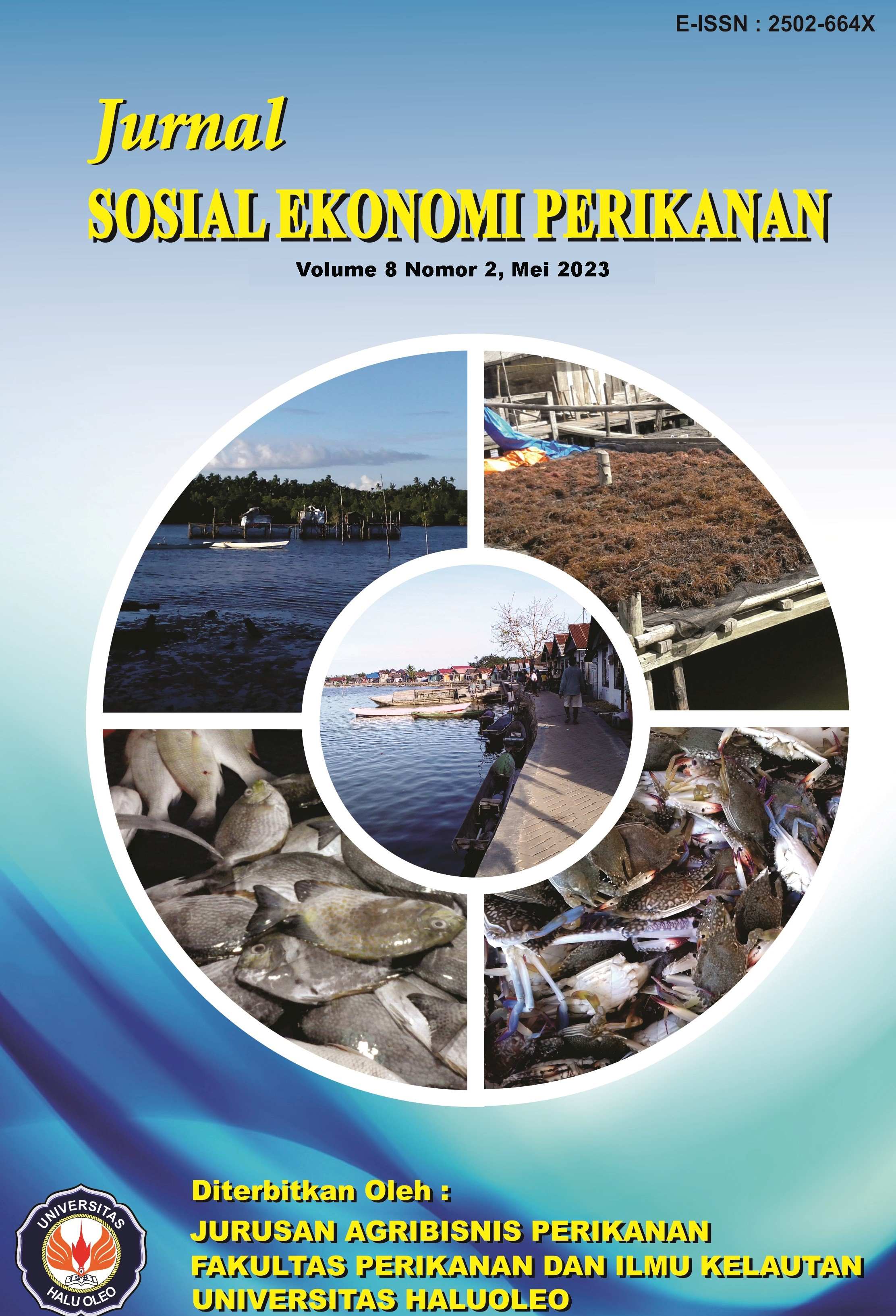The concept of acceptance of Yogyakarta rice field cafes as environment-based economic empowerment is reviewed through the TAM and UTAUT approaches
DOI:
https://doi.org/10.33772/jsep.v8i2.18Keywords:
Concept of rice field cafe, Revenue, Development Economics, Local Potential, TAM, UTAUT, PLSAbstract
The acceptance of local potentials and resources for the management of land with the concept of rice fields to be used as shops (paddy cafes). Several changes also accompanied, including the acceptance point of view by the community in which the concept of a rice field cafe is considered a driving force and an impetus for the community's economy. Of course, this is an interesting urgency for presenting scientific research that aims to find out which variables affect the acceptance of innovation in the form of a rice field cafe concept involving 51 respondents, and then uses the integration of two approaches, namely TAM and UTAUT. For UTAUT, a new variable was added, which was Brand and Service Trust. Then, all of these variables were formed into a conceptual model and processed with the SmartPLS 3.0 software. The obtained results indicate the acceptance of 7 out of 8 hypotheses. This shows the positive influence of the respondents on the acceptance of the visit and their willingness to be exposed to the concept of a rice field cafe. The final result of this research is that the respondents of this research have felt the acceptance of the development of the economic potential resulting from the rice field cafe concept.
References
Fauzi, A., Punia, I. N., & Kamajaya, G. (2017). Budaya nongkrong anak muda di Kafe (tinjauan gaya hidup anak muda di Kota Denpasar). Jurnal Ilmiah Sosiologi (SOROT), 3(5), 40-47.
Al-Gahtani, S. (2001). The applicability of TAM outside North America: An empirical test in the United Kingdom. Information Resources Management Journal (IRMJ), 14(3), 37-46.
Chin, W. W. (1998). The partial least squares approach to structural equation modeling. Modern methods for business research, 295(2), 295-336.
Sitanggang, C., & Supriono, S. (2018). Analisis Kegiatan Promosi Pariwisata Di Cafe Sawah Desa Wisata Pujonkidul. Jurnal.Administrasi Bisnis (JAB) Vol. 57 No. 2, 21-30
Davis, F. D. (1989). Perceived usefulness, perceived ease of use, and user acceptance of information technology. MIS quarterly, 13(3): 319-340.
Melani, E., Afandi, A., & Indrawan, A. K. (2019). Peningkatan Kapasitas Pengelolaan Desa Wisata Kafe Sawah Pujon Kidul. Jurnal PkM (Pengabdian kepada Masyarakat), 2(01), 1-5.
Purbiyanti, E., Yazid, M., & Januarti, I. (2017). Konversi lahan sawah di Indonesia dan pengaruhnya terhadap kebijakan Harga Pembelian Pemerintah (HPP) gabah/beras. Jurnal Manajemen & Agribisnis, 14(3), 209-209.
Fadil, T. M. (2019). Peran Cafe Sawah Dalam Pengembangan Ekonomi Desa Pujon Kidul, Kecamatan Pujon, Kabupaten Malang .Doctoral dissertation. Universitas Brawijaya. Malang
Fatmawati, E. (2015). Technology Acceptance model (TAM) untuk menganalisis penerimaan terhadap sistem informasi di perpustakaanM INFORMASI PERPUSTAKAAN. Iqra: Jurnal Perpustakaan dan Informasi, 9(1), 196942.
Fornell, C. (1982). A second generation of multivariate analysis: An overview. Methods, 1-21.
Rahmawati, M., Wardhani, G. S., Purnomo, A., & Glenn, P. (2020, February). Community participation to develop rural tourism in cafe sawah pujon kidul village. In International Conference on Social Studies and Environmental Issues (ICOSSEI 2019) (pp. 313-317). Atlantis Press.
Zolotov, M. N., Oliveira, T., & Casteleyn, S. (2018). E-participation adoption models research in the last 17 years: A weight and meta-analytical review. Computers in Human Behavior, 81, 350-365. doi: 10.1016/j.chb.2017.12.031.
Nila Wardani, W. S. (2018). Menyiapkan Angkatan Kerja Muda dan Perempuan Yang Handal dan Berdaya Saing Kabupaten Malang. Ruang Mitra Perempuan (RUMPUN) Malang.
Santoso, L. (2017). (The Etnography of Coffee Shop: Identity Politics of Cangkrukan in the City of Surabaya and Sidoarjo). Mozaik Humaniora Vol. 17 (1), 113-125.
Wahyuningtias, W. A. (2019). Strategi Pengembangan Objek Wisata Cafe Sawah di Desa Pujon Kidul, Kecamatan Pujon, Kabupaten Malang, Jawa Timur (Doctoral dissertation, University of Muhammadiyah Malang).
Tantina, W. I. (2018). Manajemen Strategi Pengembangan Obyek Pariwisata Cafe Sawah. Jurnal Administrasi Publik, 6(1), 1-10.
Downloads
Published
How to Cite
Issue
Section
License
Copyright (c) 2023 Eko Juni Wahyudi, Farida Isroani

This work is licensed under a Creative Commons Attribution 4.0 International License.
Jurnal Sosial Ekonomi Perikanan (JSEP) dilisensikan di bawah lisensi (CC Attribution 4.0). Pengguna bebas untuk menggubah, memperbaiki, dan membuat ciptaan turunan bukan untuk kepentingan komersial, dan walau mereka harus mencantumkan kredit kepada Anda dan tidak dapat memperoleh keuntungan komersial, mereka tidak harus melisensikan ciptaan turunan dengan syarat yang sama dengan ciptaan asli.





